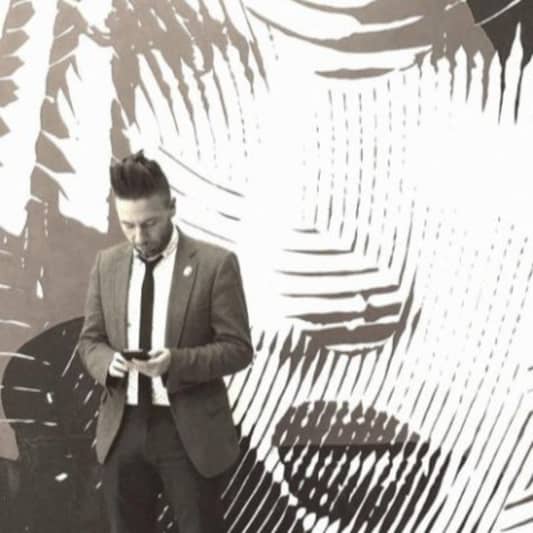
Hi, I'm Johan from the electropop / synthwave act 2DCAT. I've been publishing music for over twenty years now across various genres, to include: EBM/Industrial, synthpop, electropop, and synthwave/retrowave. This journey has taken me on tours across multiple continents and countries, to include Japan, New Zealand, Germany, France, and Brazil.
Offering music production services as well as remix services. Specializes is electropop music. To familiarize yourself with my music stylings, check out: https://open.spotify.com/artist/78CkUkpoNpLZbnIOv00M6Q?si=sGTtOWQcSAGtuZ26_Awb_g
Send me an email through 'Contact' button above and I'll get back to you asap.
Interview with Johan Hauck
Q: Analog or digital and why?
A: As an electrical engineer, I can say that today, digital designs can now fully emulate analog designs (depending on the technology -- e.g., UltraScale, UltraScale+, Stratix-10). The only real drawbacks are power consumption, which is mostly n/a when talking about porting old 80s analog technology to a Xilinx UltraScale+ today. I think that the digital electronics that came out in 90s and early 00s really gave folks a bad impression that is probably very difficult to overcome today though.
Q: What are you working on at the moment?
A: Working on a new synth design and always new music.
Q: What's your 'promise' to your clients?
A: I promise to deliver something that I am proud of.
Q: What do you like most about your job?
A: Creating sounds
Q: What's the biggest misconception about what you do?
A: That i'm not approachable
Q: What questions do you ask prospective clients?
A: I'd mostly be interested in hearing a style they want, a message or feeling they want to convey, things along those lines.
Q: What advice do you have for a customer looking to hire a provider like you?
A: Just ask!
Q: If you were on a desert island and could take just 5 pieces of gear, what would they be?
A: Chroma Polaris, PC, Xilinx UltraScale+ FPGA, Juno-106, EMS VCS3 MKII
Q: What was your career path? How long have you been doing this?
A: I started doing this in 1998, so for over 20 years now! My career started off in Tokyo, and 1998 was an interesting time to be starting off as an electronic musician in Tokyo!
Q: How would you describe your style?
A: Dreamy, upbeat, driving basses, fragile lead lines.
Q: Which artist would you like to work with and why?
A: I'd probably go with Ladytron. Ladytron is who brought me to Synthpop in the early 2000s after writing more aggressive music and they've consistently published music that has made me smile.
Q: Can you share one music production tip?
A: The more I listen to order music and examine suprematism and constructivism art styles...less is more.
Q: What type of music do you usually work on?
A: I started off doing EBM/Industrial music 20 years ago, before progressing onto Synthpop music. Now I mostly do Electropop or Synthwave/Retrowave music.
Q: What's your strongest skill?
A: Determination to publish something that I am proud in.
Q: What do you bring to a song?
A: A second set of ears for one! I'd like to think that I have been at this long enough where I can get a feel for what works and what doesn't work.
Q: What's your typical work process?
A: I think it's pretty standard in that there is no standard work process. Everything is different and each work process for each song is slightly different.
Q: Tell us about your studio setup.
A: I'm also an electrical engineer by trade, and my spare time is in building DSP and FPGA-based synthesizers. I have a number of analog synths from the 80s that I still love and use today, one of my favorite being the Chroma Polaris. I still love using the Juno 106 and Polysix in most things I do as well.
Q: What other musicians or music production professionals inspire you?
A: I'm inspired by the early electronic music pioneers, to include Giorgio Moroder, Cabaret Voltaire, The Human League, New Order/Joy Division, OMD, and The Normal. I was also heavily influenced by some of the old EBM/Industrial pioneers, to include Nitzer Ebb, Front 242, Skinny Puppy, Birmingham 6.
Q: Describe the most common type of work you do for your clients.
A: I spend equal parts between doing remixes for clients as well as writing songs for vocalists.

- The Midnight
- Ladytron
- Gunship
- Fender Chroma Polaris
- Roland Juno-106
- Korg PolySix
- Roland JP-8080
- Roland MKS-50
- Clavia Nord Lead 2
- Access Virus B Synthesizer
- Yamaha AN1x
- Roland JD-990
- Vermona M.A.R.S.
- Waldorf micro Q
- Behringer MonoPoly
- Yamaha DX200



